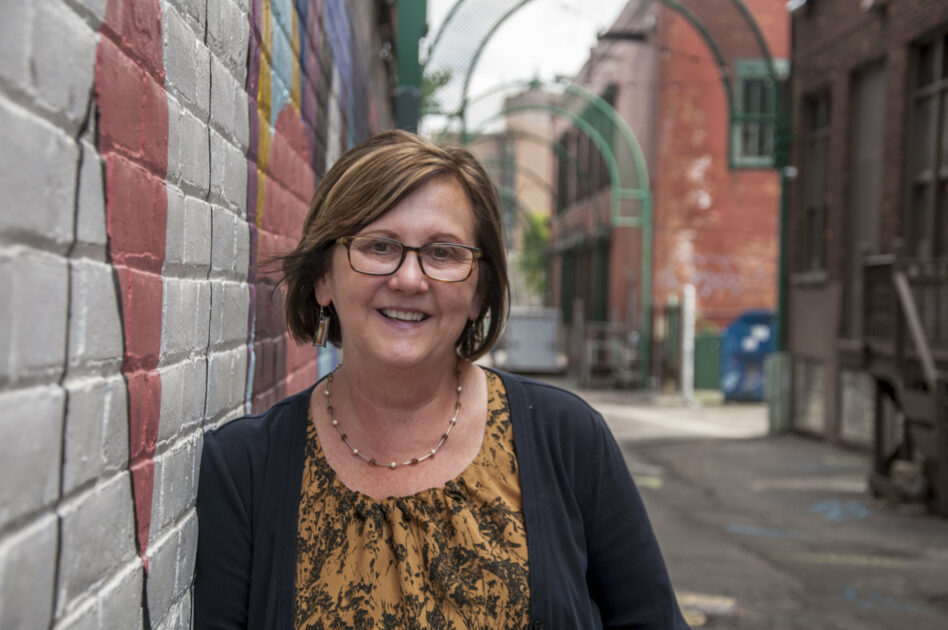
When Reverend Dawn Ramirez, the compassionate force behind Little Lambs Compassionate Ministry Center, joins me, Margie Bryce, it’s more than just a conversation—it’s an inspiring journey through how coaching is a valuable asset for ministry. Discover the powerful narrative of how Rev. Ramirez and her team have sustained hope and support for families in Genesee County, navigating the challenging waters of the COVID-19 pandemic with an innovative shift to mobile outreach, ensuring no one goes without essentials like food, diapers, and clothing.
This episode of the Crabby Pastor podcast unveils the profound impact of coaching on ministry leaders, a topic that often goes unspoken. Reflect on the unexpected discoveries and deep-seated revelations encountered through this transformative practice. We celebrate the courage it takes to lead with vulnerability and how this shapes not only personal growth but also the extended community. By the end of our time together, you’ll carry with you a renewed sense of purpose for sustaining self-care practices in ministry leadership through the process of coaching.
Here is a link to learn more about Little Lambs Compassionate Ministry Center in Flint, MI.
Support the show
This is a GUILT-FREE zone! So here’s your friendly nudge about self-care and its importance for the sake of your family, friends, and those you serve in ministry.
I love scouring around to find great content to share, and am always interested in feedback, OR if you are or know of someone willing to share their Back from Burnout story so we can all learn together, then CLICK HERE to email me.
And, if this is a reminder you wish to opt out of, that’s fine too.
Blessings on your journey!
Margie
🦀 🦀 🦀
Find regular support on my Facebook group by clicking HERE.
Connect with me about COACHING and Workshops on self-care HERE.
Transcript:
Margie: 0:01
Hey, there, Margie Bryce, here bringing you the Crabby Pastor podcast, and I don’t think you’re going to be too surprised to know that it’s too easy today to become the Crabby Pastor. Our time together will give you food for thought to help you be the ministry leader, fully surrendered to God’s purposes and living into whatever it takes to get you there and keep you there. And we’re talking about sustainability in ministry. Well, this is Margie Bryce with the Crabby Pastor podcast. We’re talking about things self-care and we’re talking about things leadership. I am here today with Reverend Dawn Ramirez, and I have known Don for quite a few years. Huh, where did we meet? What was that first restaurant? I don’t remember. I didn’t remember.
Dawn: 1:00
Yeah, I think we had like breakfast or brunch at Big Boys in Grand Blanc.
Margie: 1:06
Yeah, big Boys. You know I don’t know if you’re from Michigan or not there’s a restaurant thing called Big Boys and I don’t know what to say about that. But anyway, it was quite a few years ago and we just started chatting and we stayed kind of in connection and I thought I’d have Dawn on this episode and we’re going to talk about coaching is what we’re going to talk about. And first I’m going to ask Dawn to introduce yourself, and she has just a fascinating and wonderful ministry context. I’d like you to tell us about that.
Dawn: 1:39
Thanks. Yes, I’m an ordained elder in the Church of the Nazarene. I’m the executive director of the Little Lambs Compassionate Ministry Center and we’ll be celebrating 20 years next spring. If you can believe it or not, we have been in different iterations here in Genesee County, in Flint, providing resources for families with children, free resources, providing someone who can walk alongside, so it’s not just giving out things but also giving of ourselves. In regards to relationships, you know moms they can’t always do this alone. A lot of the families we work with, the moms don’t have a lot of supports in their systems, so they need that extra person just to sit with them sometimes and listen and kind of guide and be there for them. So I do that, feeling very blessed to be able to do that now for almost 20 years.
Margie: 2:39
Yeah, and you, during COVID, did a great pivot, didn’t you?
Dawn: 2:44
Yes, we pivoted. That was the name pivot. We have had a center. We’ve always been kind of center-based. Where folks came to us. It was a kind of a boutique where they came in to pick out the items that they needed. We had previous to 2020,. We had a mobile unit because we did realize that the county is large and we can’t always get people can’t always get to us, so we wanted to get to them. But even with that, it was kind of a system where we worked with maybe a school or another agency that was doing food distribution and would park our mobile unit. Thank you for the day. But when COVID hit and everything shut down, including the buses, our community created this task force through the sheriff, where people could call in and let them know what kind of needs they were having, because without buses and we have areas that have huge food deserts, so if you can’t get a bus, you can’t get to the grocery store. And trying to buy diapers and formula and food at the corner convenience store or what we would call here in Michigan party stores it was not going to do it. So we worked with the sheriff’s task force. We got permission to be out and about. We worked with the diaper bank and the food bank and we delivered. We delivered two to three days a week from the end of March through the middle of June. Once the buses came back online, we went back into the city or back into our center and for those weeks those eight or nine weeks we were out there, and if we weren’t out there delivering, then we were packing up orders that we were receiving from a variety of different ways and it enabled us to see people, for them to be seen, for us to be seen. Also, it really reminded us how big of a community we have, space-wise and population-wise, and really set us on a trajectory to be even more generous. When we came back to the center, we realized, man, it takes a while to get here from the most northern parts of our county and we need to make it even more worth their trip. And worked with different agencies that we hadn’t been aware of, so in retrospect it was a positive thing.
Margie: 4:58
Hmm, well, that is good to hear. So you’re serving all of Genesee County, which does include Flint, michigan, which is a pretty impoverished area in parts. In parts it is. And what kind of items can moms find? A little lamb’s compassionate, I love that name.
Dawn: 5:22
Well, we have clothing from newborn through size 14-16, which is your bigger kids. So clothing which can be PJs, socks, underwear, your pants, your shirts, your outer clothing you know winter coats we’re getting ready to put out the winter coats and boots and snow pants. We also do diapers and wipes and formula, if need be as an emergency situation. We have a small food pantry school uniforms, maternity clothes that’s been a big one this past week. We’ve had several moms who requested maternity clothes and that’s always an important thing. We have two initiatives safety initiatives with safe sleep and safe travel. So wanting to make sure parents are educated on the proper way of a newborn, where they should sleep and how they should sleep, and being able to provide, at times, some of those pieces to that puzzle, as well as safe travel with car seats and such. So those are the majority of the pieces that we physically provide.
Margie: 6:24
Hmm, I love this ministry. I really do. Thank you. Yeah, it’s been fun to see over the years, the growth and it’s exciting to hear that what COVID you know COVID brought so much, but in this instance COVID also brought a lot to the ministry new connections and just new insights and all of that about your community and who you’re serving. You and I coached and I, together, I was your coach, and what I want to say first off is that coaching is confidential and we aren’t going to discuss the content per se of Dawn’s coaching, but we’re going to talk about coaching and her experience with coaching, because it can be a little different Everything’s coaching, like the soccer coach on the side of the field yelling at the kids or something, and it’s a tad, a tad a scoosh different. So I wanted to ask Dawn a few questions and just share about her experience with it, and I’m going to start with what your expectations of coaching was going into it.
Dawn: 7:37
I didn’t have a lot of high expectations. It wasn’t anything personal. I’m just like oh man, this is going to be awkward, this is going to be painful and, when it comes down to it, I’m probably just going to waste her time and my time. Those were the. Those are my honest to God thoughts. I’ll do this because I’m kind of desperate in this situation, but it’s going to just be painful, awkward and waste of time.
Margie: 8:03
That’s what I thought you know I appreciate the honesty there, really high marks, gold stars and all that. For honesty. I wasn’t wasn’t exactly expecting that, but I I embrace that. I’m good with that actually. But how did the the reality of what you experience? How was it different than what your expectations were?
Dawn: 8:30
Well, it was not a waste of time and it was a lot easier. It’s slow. The awkwardness that I thought might be there load and the whole process wasn’t wasn’t difficult at all. It was kind of a combination of talking to a friend and a mentor saying you know. So in general it was a lot, a lot more pleasant than I would have imagined.
Margie: 8:59
I wonder what you know what I’m just now. I’m curious about what brought the expectation. Of this is going to be hard and awkward, and do you have any insights into that?
Dawn: 9:10
Sure, I’m not. I’m a, I’m a doer and I’m a go-getter and I’m not a lot of in the strengths world. I don’t have a lot of those orange feeling empathies, and I mean I have empathy. I just don’t talk about my feelings. And I was so concerned. You’re like, well, how does that make you feel, you know, like I was, and I was like, oh, I was just gonna make me talk about my feelings or something. That’s not where I was at the time. You may have, but it didn’t come across that way. So it wasn’t. You know, it wasn’t like therapy, which is, you know, which is a whole other aspect of things, and I didn’t know what to expect. So, and that’s, I think that’s really what it was. I hadn’t had any. The kind of mentoring I’ve had has been very specific and task-oriented and you know, for as, as a clergy, you have a mentor and it’s very this is how it’s kind of logistical in a lot of respects. So I I had just put off the worst thoughts in my head of what it could be out there.
Margie: 10:13
Yeah, and even if I sit down with someone and I go through what coaching is and what it’s not, which, I can do that little spiel and still you know and you’ve covered some of this about what it felt like to be coached. But do you have any more you want?
Dawn: 10:30
to add to that. Yeah, I mean it was, it was. Sometimes it was as easy as talking with a friend because you understand the context that I’m in, both as a clergy and within our own specific holiness Wesleyan denomination tribal logistics. You get that, so in some ways it was very I didn’t have to re-explain a lot you understood that, and as a mentor, because you’ve been doing this longer than I have. But it was even better because sometimes, when you’re with a mentor like an, an official mentor, who could be your professor next semester or your boss next year you might guard yourself and what you say you might, or, if you have a friend that you’re talking to, depending on what their situation is, you might, you know, hold back because of their biases on certain subjects. So it was, it was the best of all worlds in regards to friends, mentorships, but a freedom that you I don’t want to say you didn’t have skin in the game, but you didn’t. It wasn’t personal, right, so it was. It was much more freeing than I would have imagined and that freedom, I think, is part of why it’s really helpful.
Margie: 11:40
Maybe help to process things a little differently.
Dawn: 11:45
Okay, absolutely, yeah, I think yeah, absolutely, it was. It was key.
Margie: 11:51
Okay, all right. Well, how would you respond to this statement that I’m going to make? Some of the coaching process takes place after the coaching session is over.
Dawn: 12:05
Absolutely. I would agree with that 100%, because during the process you’re, you know, I’m if it’s venting or if I’m just like giving out all this information you’re asking questions, I’m taking notes. Maybe I’m I’m not letting it all soak in at that moment while we’re having the discussions, but it was both in the application of what we discussed and in the just after letting it rumor, you know, bounce around in your brain. I would find and this is not to sound weird, but like your voice would be in my head, you would you at one point, ask a very specific, poignant, very direct question that I could not answer at that time. Probably, if I could have had the answer, I wouldn’t have needed the coaching, but you asked it and I didn’t know the answer. And so, throughout the time, you know the next, what, three, four, five, six months later, I’m still that question’s coming up, and now I’m applying it to things. Well, okay, what was that? You know? And so, and I think that’s when I reached out to you and said hey, by the way, you’re great, this was really helpful because I’m, because when we’re in the, the coaching sessions, there’s a lot of information going on and you, you need that time to kind of meditate on it and to think about it and to pray about it and to really to really seek the answers to the questions that you asked, and I think you’re able to, anytime that we get you know in a situation where we’re stuck. It’s all about perspective and you have that great perspective, again, knowing the context, understanding the context of being clergy, that you can, you can determine, you can help us determine. Is this issue that we’re having Cause? Anytime that we come in with, if we’re stuck or we’re feeling challenged or we can’t get past something, it’s a vulnerable place. So we come and we’re vulnerable and you are able to point out okay, well, this might be what we think might be the problem, may not be the problem. That might be a gravity problem. We can’t fix gravity. That exists. What is something you start asking those little questions, that kind of start to show oh, maybe this is the real issue here. And by asking those questions it gives us. It gave me a lot to chew on for the next. We met a couple of times and then from then on it gave me a lot to chew on and to kind of do my homework and do the work, and then it became resolved in many ways, not in just that one instance, in that one circumstance, but it’s something that I will take with me the next time I run into a roadblock. Okay, well, what were those questions that she asked me? Cause we don’t ask ourselves questions that we should probably ask ourselves, especially when we’re in it, when we’re in the trenches, we’re up to our neck in it. We just don’t have that ability to see a different perspective than what we’re seeing right then and right there.
Margie: 15:15
Right. You get stuck in the rut and you need somebody to say you know there really are more solutions here than what your rut is telling you, and I like that. You included early on in your comment that you’re allowed to rant. I mean sometimes you need a safe place to rant and a safe place to be 100% honest. Everybody needs that, especially those three leaders.
Dawn: 15:40
Right, and so often we are in situations where we can’t really say what we’re feeling, especially if we don’t know what we’re feeling or thinking on a particular. We just don’t have that freedom to do that, or questioning, or for curious. Whatever those situations are, we’re supposed to be the ones in the know, you know, and Supposedly yeah. Supposedly right, so I don’t know.
Margie: 16:05
It’s helped me be able to say I don’t know, and that’s okay, it is absolutely okay to say that, well, I don’t know, I don’t know, I have to go check that out and get back to you if I find anything worth sharing, but yeah, for sure, for sure. So what would you say then to a ministry leader who’s considering what next steps to take, or maybe someone who’s feeling a little stuck or overwhelmed?
Dawn: 16:32
Well, two things. First of all, I’d say do it, do it, make the call, reach out. I mean, what do you have to lose? Because they say, insanity is doing the same, repeating the same actions, but expecting different outcomes. Well, that obviously hasn’t worked, and that’s okay. We, it’s okay that it didn’t work. I don’t. I think we’re supposed to be in community. I mean, that’s the way God made us as human beings, we and so there’s nothing to lose, there’s nothing to fear. Just do it. What’s the best possible scenario is that you get unstuck and, oh no, you had to have someone help you. That might be a continuing thing, but that’s okay.
Margie: 17:15
I don’t know, unless you, unless you like banging, this would be what I would do. Is you know I’d keep banging my head on the wall and then I’d go. I don’t get why I have a headache.
Dawn: 17:24
I don’t get it Right and yeah absolutely, I’m going to try and push this. You know, break down this wall with my head. Yeah, that I mean. That’s that is. That’s the waste of time. You know I was so concerned about our sessions being a waste of your time or my time, and I’m like, no, I’ve been wasting my time prior to that trying to see a perspective that I just couldn’t. So, just do it. That’s my, that’s my advice Just do it.
Margie: 17:52
Well, I appreciate you coming on and giving your experience with, with coaching, and you know that’s my calling is to come alongside ministry leaders to encourage them. So we don’t become crabby because we’re stuck. It’s easy to become crabby, or for overwhelmed, or just not sure what to do next. It and you might not be crabby on the outside, you might just be crabby on the inside, you know, or you just take it home. I had one guy stop at my booth and say I’m never crabby and I said, oh, go get your spouse and bring her over here and we’ll talk. He didn’t come back, but anyway anyway, I’m so thankful that you had the kind of breakthrough experience that that I would hope for any of my clients to have. So thank you so much for being part of the crabby pastor podcast and I always ask this question. I didn’t put that in, you know, so this is like impromptu. We’re living on the edge now, but I usually ask anybody that’s on the podcast what makes them crabby.
Dawn: 19:02
Oh, having things at the end of the day on my list that I didn’t, that I couldn’t check off.
Margie: 19:11
Oh yeah, again high marks for honesty, right yeah?
Dawn: 19:15
that makes me crabby.
Margie: 19:17
Yeah.Dawn: 19:19
Yeah, and interruptions. And the weird thing is is, you know, in ministry it’s all about interruptions. You are constantly interrupted. You think your day is going to be X, y and Z, so I’ve had to, you know, realize what it is the focus of my work is. But still, I am still ingrained to be that person that puts the things that I did do that wasn’t on the list on the list just so I can check it off. Yes, I do the same.
Margie: 19:46
I just, I don’t know what that says, but probably something obsessive, compulsive, but it’s just the joy of yes, I guess. I guess it is so well. Thank you again for being on the podcast and I my blessing on the little lamb’s compassionate ministry center in Flint. And I will put a link to your ministry in the show notes. Thank you, you can check it out. Awesome, thank you. Thank you, take care. Hey, friends, the Kravipaster podcast is sponsored by Bryce Art Glass and you can find that on Facebook. I make stained glass. That’s part of my self-care and also by Bryce Coaching, where I coach ministry leaders and business leaders, and so the funds that I generate from coaching and from making stained glass is what is supporting this podcast and I will have opportunities for you to be a part of sponsoring me and, as always, you can do the buy me a cup of coffee thing in the in the show notes. But I will have some other ways that you can be a part of getting the word out about the importance of healthy self-care for ministry leaders. Hey, thanks for listening. It is my deep desire and passion to champion issues of sustainability in ministry and for your life, so I’m here to help. I stepped back from pastoral ministry and I feel called to help ministry leaders create and cultivate sustainability in their lives so that they can go the distance with God and whatever plans that God has for you. I would love to help, I would consider it an honor and, in all things, make sure you connect to these sustainability practices you know, so that you don’t become the Crabby pastor.


